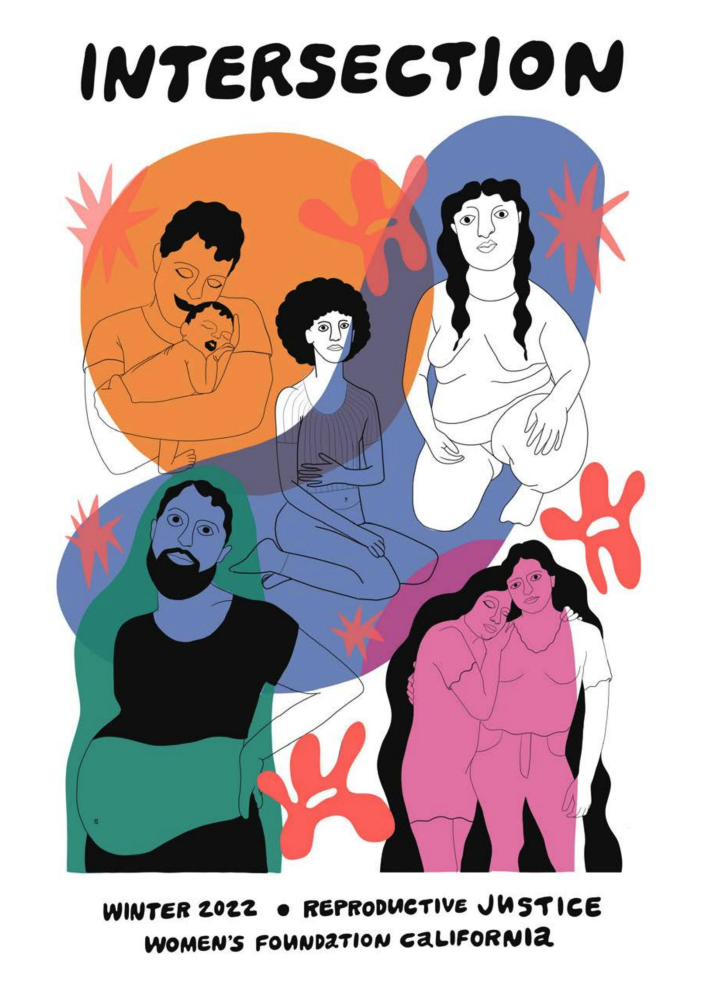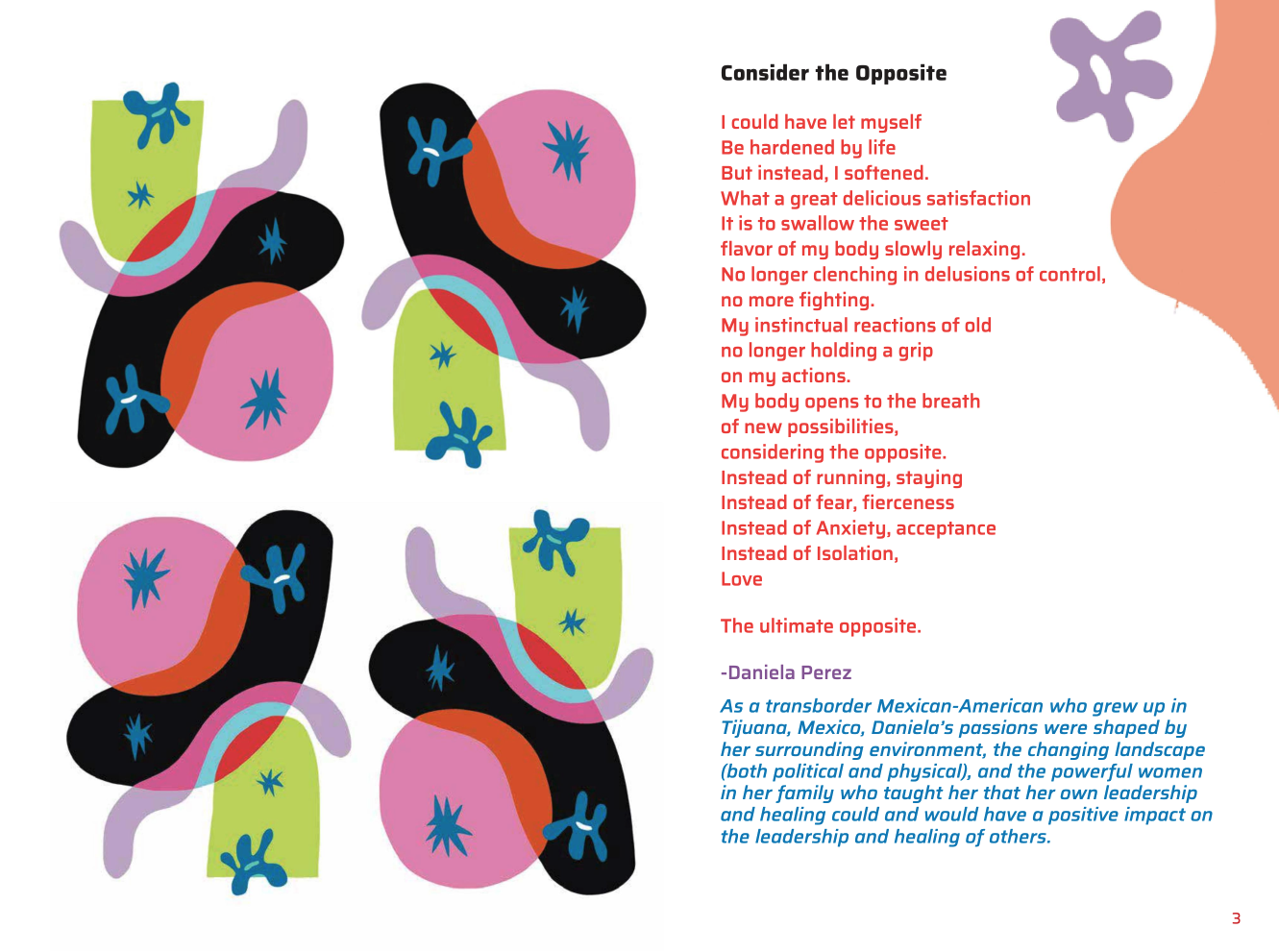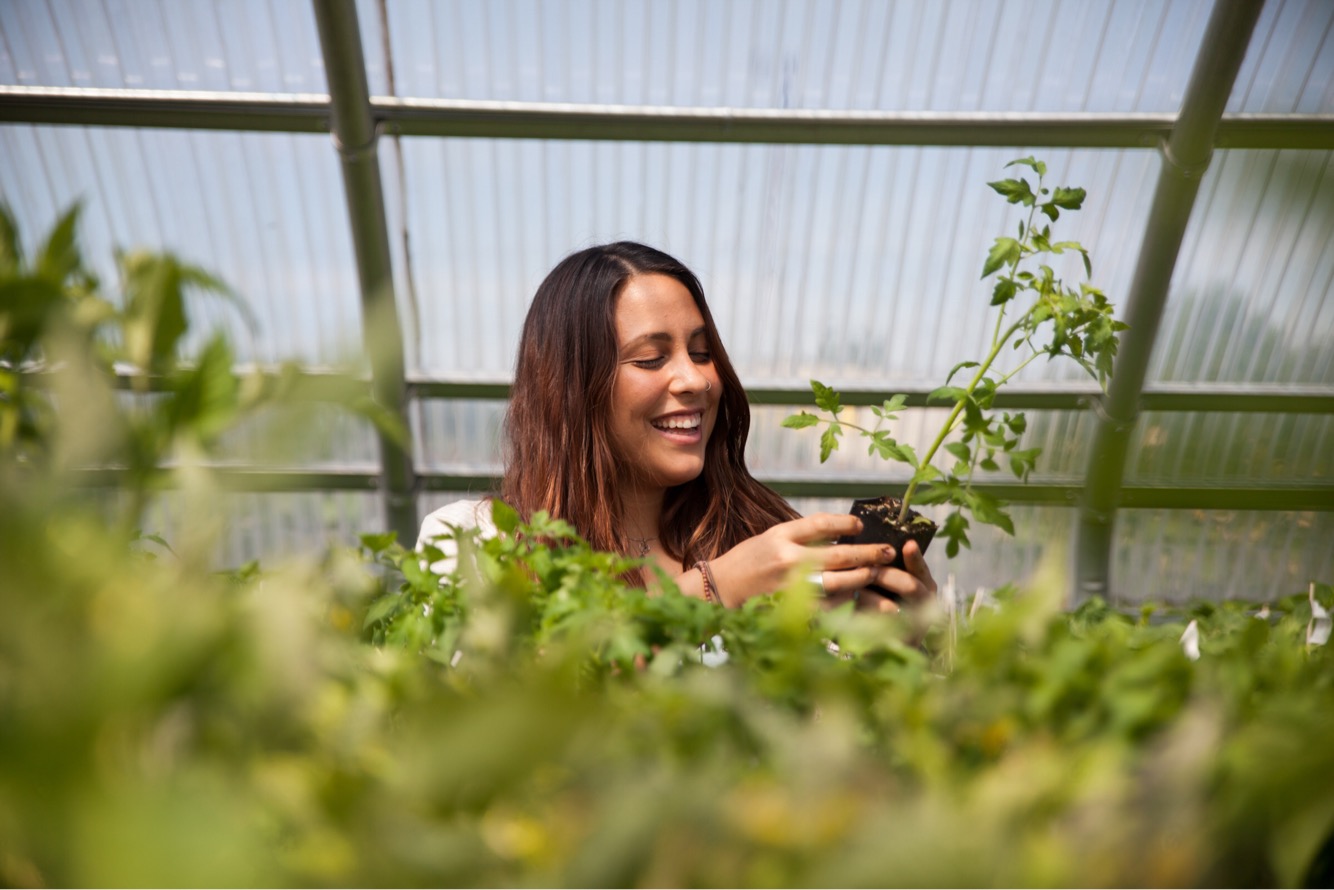Love as Liberation: Poetry for Reproductive and Climate Justice

The Women’s Foundation California (WFC) recently published Intersection: a collaborative zine that uplifts the voices of community poets and activists and creates a collective space to organize, heal, and envision our reproductive justice future. With this zine, WFC hopes to highlight the decades of reproductive justice work they've accomplished through community grants and legislative organizing. WFC supports reproductive justice grant partners and has passed over 50 pieces of intersectional feminist policies through the Solís Policy Institute (SPI).
The zine featured writings, multimedia art, and photographs from folks on the frontlines of the reproductive justice movement, including a poem written by Daniela Perez, WEA’s Director of North America/Pacific programs. Her poem, Consider the Opposite, explores the radical edge of healing from intimate partner violence.

Daniela’s story — and the other stories shared within Intersection – is a testament to the resilience of our community in the journey toward bodily autonomy.
Bodily autonomy is the right to have agency and power when it comes to choices concerning one’s own body. To have full bodily autonomy is to be empowered to make decisions about one’s body and health — without constraints or control from other people, the state, or even cultural norms. Too often, policies, practices, and other barriers prevent women and gender-expansive folks — especially people of color — from exercising their fundamental right to bodily autonomy: including through the dismantling of abortion rights, bans on gender-affirming care, anti-trans legislation, sexual violence and abuse, and more.
The reproductive justice movement envisions a future where bodily autonomy is achieved and upheld, where everyone has access to the means and resources needed to enact decisions about their bodies, and where culturally responsive care and services are available and accessible to all.
At Women’s Earth Alliance (WEA), we stand in the truth that reproductive justice is climate justice.
Climate change exacerbates existing structural and gender inequities, which means that as ecological crises intensify, women and gender-expansive folks’ health, safety, and livelihoods are impacted most. Rising global temperatures and environmentally destructive practices are associated with increased rates of sexual violence, unwanted pregnancies, displacement and trafficking, and negative health outcomes. Climate change cannot be solved without a strong reproductive justice lens and an unwavering commitment to achieving body autonomy for all.
Read WEA’s Violence on the Land, Violence on our Bodies report and toolkit, published in partnership with the Native Youth Sexual Health Network (NYSHN), for more information on the deep interconnections between environmental violence and sexual and reproductive health, safety, and wellbeing.
Given the current and ongoing political and cultural threats to bodily autonomy and reproductive justice, it is critical to uplift and amplify the voices of those experiencing violence, and engage in what WFC calls “Joyful Activism.”Joyful Activism reminds us that in the process of creating a more just society, we must also make space for rest, creativity, healing, and community. By leaning on the power of joy, we are reminded of what we are fighting for.

Daniela’s poem in Intersection is joyful activism in action. She wrote Consider the Opposite at a time in her life when she was healing from the trauma of experiencing abuse and intimate partner violence. For Daniela, poetry is a way to explore what it feels like — in her body — to experience freedom from that violence, to break with the patterns of pain that are created by complex PTSD, and to create new pathways within her nervous system. Her poem is a joyful celebration of this process of healing.
Daniela speaks and writes about her experiences from a grounded and regulated place, bringing with her a deep message of hope: that healing is possible. She affirms that we can create new realities for ourselves as we engage in this collective practice of liberation and healing.
Consider the Opposite is about Daniela’s journey of learning to sit with the discomfort of her trauma, to get to know the patterns of pain, and to contemplate what it would feel like to soften into new possibilities and allow love to flourish. Through her poetry, Daniela invites us to imagine: What would it look and feel like to consider love as the guiding principle for our individual reactions, collective policies, and our working communities?
To ponder this question is to consider how love can be an unwavering source of liberation — in the movements for bodily autonomy, reproductive justice, and climate justice alike. In the words of Dr. Cornel West: justice is what love looks like in public.
By Daniela Perez, WEA North America/Pacific Program Director & Fiona McLeod, Communications and Development Manager
